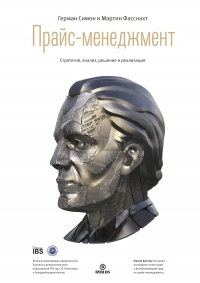Читать книгу "Развитие интеллектуальных способностей подростков в условиях спортивной деятельности: теоретико-методологические и организационные предпосылки - Галина Кузьменко"
Шрифт:
Интервал:
Закладка:
338. Eysenck H. J., Evans D. Know your child’s IQ. – Great Britain: Mind Games, 1995.
339. Feuerstein R. The theory of structural cognitive modifiability // B. Z. Presseisen (Ed). Learning and thinking styles: Classroom interaction. – Washington, D. C.: Nat. Educat. Association, 1990. – P. 68–134.
340. Fischer K. W. A theory of cognitive development: The control and construction of hierarchies of skills // Psychological Review. – 1980. – Vol. 87 (6). – P. 477–531.
341. Fodor J., McLaughlin B. Connectionism and the problem of Systematicity: Why Smolensky’s Solution doesn’t work // Cognition. – 1990. – Vol. 35. – P. 183–204.
342. Gardner H. Multiple Intelligences: the Theory in Practice. – N. Y.: Basic Books, 1993.
343. Gardner H. E. Frames of Mind: The Theory of Multiple Intelligences. – N. Y.: Basic book, 1983.
344. Guilford J. P. Some changes in the Structure-of-Intellect model // Educational and psychological measurement. – 1988. – Vol. 48. – P. 1–4.
345. Guilford J. P. The nature of human intelligence. – N. Y., 1967.
346. Horn J. L., Knapp J. R. On the subjective Character of the Empirical Base of Guilford’s Structure-Intellect Model // Psychological Bulletin. – 1973. – Vol. 80. – P. 33–34.
347. Horn J. L., Noll J. Human cognitive capabilities: Gf-Gc theory // Contemporary intellectual assessment: Theories, tests and issues / Ed. by D. P. Flanagan at al. – N. Y.: Guilford, 1997. – P. 53–91.
348. Kim C. K. Attitude Training and Muscular Adaptation // ISSCE’96. Abstracts. – Bangalore, India, 1996. – P. 64–66.
349. Kosmitzki C., John O. P. The implicit use ofexplicit conceptions of social intelligence // Personality & Individual Differences. – 1993. – Vol. 15. – P. 11–23.
350. Lewin K. Principles of topological psychology. – N. Y., 1936.
351. Mayer J. D., Caruso D., Salovey P. Selecting a measure of emotional intelligence: The case for ability scales // The handbook of emotional intelligence / Ed. by R. Bar-On, J. D. A. Parker. – N. Y.: Jossey-Bass, 2000. – P. 320–342.
352. Missoum G. Psycho-pedagogie des activities du corps. – Paris: Vigot, 1986.
353. Murray H. A. Thematic Apperception Tests. – Cambridge: Harvard University Press, 1935–1943.
354. Naglieri J. A., Das J. P. Planning, attention, simultaneous and successive (PASS) cognitive processes as a model for intelligence // Journal of Psychoeducational Assessment. – 1990. – Vol. 8. – P. 303–337.
355. Nelson J. C., Rizwanuddin, Griffin M. P., Moorman J. R. Probing the order within neonatal heart rate variability // Pediatr. Res. – 1998. – № 6. – P. 823–831.
356. O’Sullivan M., Guilford J. P., Mille R. de. The measurement of social intelligence // Report from the Psychological Laboratory, University of Southern California. – 1965. – № 34.
357. Raven J. C. The Raven Progressive Matrices: A review of national norm studies and ethnic and socioeconomic variation within the United States // J. of Educat. Measurement. – 1989. – Vol. 26. – P. 1–16.
358. Schneider W. Acquiring expertise: Determinants of exceptional performance // International handbook of Research and Development of Giftedness and Talent. – Oxford: Pergamon, 1996. – P. 311–324.
359. Spearman C. The abilities of man. – N. Y.: Macmillan, 1927.
360. Staats A. V. Personality Theory, Abnormal Psychology and Psychological Measurement // A Psychological Behaviorism. Behavior Modification. – Vol. 17. – 1993. – P. 8–42.
361. Sternberg R. Implicit theories of intelligence, creativity and wisdom // Journal of Personality and Social Psychology. – 1985. – Vol. 49. – P. 607–627.
362. Thurstone L. L. Primary mental abilities. – Chicago: University of Chicago Press, 1938.
363. Torrance E. P. Developing creative thinking through school experience // (Ed.) S. J. Parnes, H. F. Harding. A Source Book of creative Thinking. – N. Y., 1962;
364. Torrance E. P. Education and creativity // (Ed.) C. W. Taylor. Creativity: Progress and Potential. – N. Y., 1964.
365. Vernon Ph. E. The structure of Human Abilities. – London: Methuen, 1971.
366. Wechler D. The measurement and appraisal of adult intelligence. – Baltimor: Williams & Wilkins, 1958.
Внимание!
Сайт сохраняет куки вашего браузера. Вы сможете в любой момент сделать закладку и продолжить прочтение книги «Развитие интеллектуальных способностей подростков в условиях спортивной деятельности: теоретико-методологические и организационные предпосылки - Галина Кузьменко», после закрытия браузера.




